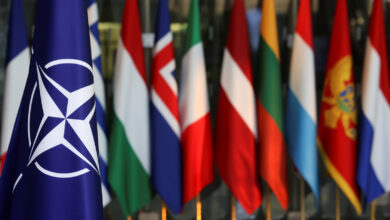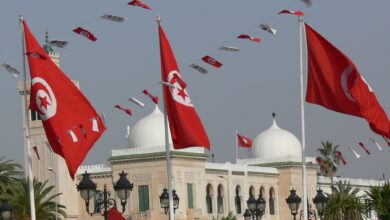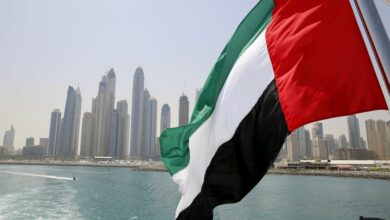TUNIS/TRIPOLI – Tunisia threatened to report Libya to the UN Security Council if it fired into Tunisian territory again, after Libya's 3-month-old conflict spilled beyond its borders.
Libyan rebels and a Tunisian security source said the head of Libya's National Oil Corporation had defected and fled to Tunisia, an act that if confirmed would be a major blow to Muammar Qadhafi's efforts to cling to power.
In the besieged city of Misrata, fighting flared up again after a lull, with a doctor saying that seven people had been wounded, most of them rebel fighters, in clashes on Tuesday with government forces.
Tunisia's state-run TAP news agency said the government would threaten Libya with diplomatic action over the "continuing firing of rockets by Libyan forces toward Tunisian territory."
"The Tunisian government views those acts as belligerent behavior from the Libyan side who had pledged more than once to prevent its forces from firing in the direction of Tunisia and has failed to respect its undertakings," TAP quoted a foreign ministry source as saying.
On Tuesday at least four Russian-made Grad rockets fired from Libya landed inside Tunisia, according to a Reuters reporter at the scene.
Rocket attacks by government troops forced Libyan rebels to pull back briefly from the Dehiba-Wazin border crossing, but they ended the day in control of it despite a sustained bombardment that killed three rebels and wounded several.
Border reopens
A Reuters reporter at the crossing on Wednesday morning said the shelling had stopped and the border had reopened, allowing a steady flow of traffic through.
Farmers were crossing over from Libya to take livestock to a market on the Tunisian side of the border, while a Tunisian military helicopter was making passes around the border area.
The border crossing is a lifeline for rebels on the western front of Libya's conflict, allowing food, medicine and fuel to reach rebel-held towns on the mountain plateau, and ambulances to take casualties to hospital in Tunisia.
In eastern Libya, rebels hold Benghazi and a swathe of oil-producing territory, helped by a NATO bombing campaign authorized at the United Nations to protect civilians opposed to Gaddafi.
But a military victory for the rebels seems a distant prospect and many pin their hopes on a collapse of central power in Tripoli driven by disaffection and defections.
National oil chief Shokri Ghanem, 68, is an internationally respected technocrat who is credited with liberalizing Libya's economy and energy sector. He is also a former prime minister.
A Libyan government official said there was no sign he had defected, but a Tunisian security source told Reuters on Tuesday "he is in a hotel with a group of other Libyan officials" in southern Tunisia.
Rebel finance and oil minister Ali Tarhouni told Reuters on a visit to Qatar that he understood Ghanem had left his post.
If he has left the country, it could worsen fuel shortages which have been causing long queues at petrol stations and anger among ordinary people.
Ghanem was heavily involved in efforts to relieve the shortages by bringing in gasoline in ways that circumvented sanctions, and by increasing domestic refining.
Canada, whose warplanes are taking part in NATO's air strikes in Libya, said on Tuesday it had expelled five diplomats from Libya's embassy in the capital, Ottawa, for what it said were "inappropriate" activities.
It did not give details on what the diplomats had been doing, and said it was not severing diplomatic relations.
In Misrata, the only rebel-held city in western Libya, a hospital doctor said seven people were killed in fighting between rebels and besieging government forces. Most of the dead were rebels killed on the eastern and western edges of the city.
Libyan state television said its forces had hit a NATO warship that was shelling targets in western Misrata, but a NATO official denied the report as "a totally fabricated allegation."




